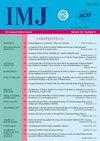POSSIBILITIES OF IMMUNOLOGY STUDIES IN ESTIMATION OF VALIDITY OF BURN WOUNDS FOR SKIN PLASTICITY
Q4 Medicine
引用次数: 0
Abstract
Immunological features of burn disease largely reflect the state of general and local changes caused by the action of thermal factors. They are fundamental in formation of physiological repair of damaged tissue and disorders of the local immune system, lead to disruption of protective mechanisms with increased risk of occurrence and progression of local and systemic complications. It is the period of burn shock that is one of the main ones in the course and consequences of burn disease. In patients, the burn septicemia period even starting from the third day is characterized by severe immune changes, frequent generalization of inflammation and infection. Since one of the main tasks in treatment of patients with thermal trauma is the earliest possible recovery of lost skin, which consists in early surgical treatment (excision of necrotized tissues followed by simultaneous or delayed autodermoplasty), it is necessary to take into account metabolic disorders and changes in immune reactivity, affecting reparation of damaged tissues. To study the main immunological parameters in treatment of skin burn defects and their impact on the results of skin grafting, 17 patients with deep burns were examined. The main indices of metabolic status and immune reactivity in t surgical treatment of skin lesions, namely, innate immunity, humoral and cell components of immunity, metabolism (phagocytic activity of neutrophils, oxygen−dependent metabolism of neutrophils, concentration of peptides) differentiation clusters CD22 +, CD25 +, HLA−DR +) were examined. It is established that the corresponding changes in the indices can be the markers to predict the results of skin grafting. In this research it was found that with an unfavorable result of autodermoplasty in the patients with deep burns significant changes in immune reactivity and metabolic disorders were revealed. Altered immune reactivity due to increased circulating immune complexes and medium molecular weight peptides that provide opsonization and elimination of cytotoxic antigens in patients with deep burns may affect the results of skin grafting in surgical treatment of skin defects. Key words: burns, immune reactivity, dermatoplasty, metabolic state, autological skin transplantation.免疫学研究评估烧伤创面皮肤可塑性有效性的可能性
烧伤的免疫学特征在很大程度上反映了热因素作用下全身和局部变化的状态。它们是损伤组织和局部免疫系统紊乱的生理修复的基础,导致保护机制的破坏,增加局部和系统并发症发生和发展的风险。烧伤休克期是烧伤发病过程和后果中的主要时期之一。在患者中,烧伤败血症期甚至从第三天开始,其特征是严重的免疫变化、炎症和感染的频繁泛化。由于治疗热创伤患者的主要任务之一是尽可能早地恢复失去的皮肤,包括早期手术治疗(切除坏死组织,然后同时或延迟自体皮肤成形术),因此有必要考虑代谢紊乱和免疫反应性的变化,影响受损组织的修复。为了研究治疗皮肤烧伤缺损的主要免疫参数及其对植皮效果的影响,对17例深度烧伤患者进行了检查。检测皮肤病变外科治疗中代谢状态和免疫反应性的主要指标,即先天免疫、体液和细胞免疫成分、代谢(中性粒细胞吞噬活性、中性粒细胞氧依赖性代谢、肽浓度)、分化簇CD22+、CD25+、HLA−DR+)。结果表明,相应指标的变化可以作为预测植皮效果的标志。在这项研究中,发现深烧伤患者自体皮肤成形术的不利结果是免疫反应和代谢紊乱的显著变化。由于循环免疫复合物和中等分子量肽的增加而导致的免疫反应性改变,这些肽为深度烧伤患者提供调理和消除细胞毒性抗原,可能会影响皮肤移植在皮肤缺陷外科治疗中的结果。关键词:烧伤,免疫反应,皮肤整形术,代谢状态,自体皮肤移植。
本文章由计算机程序翻译,如有差异,请以英文原文为准。
求助全文
约1分钟内获得全文
求助全文
来源期刊

International Medical Journal
医学-医学:内科
自引率
0.00%
发文量
21
审稿时长
4-8 weeks
期刊介绍:
The International Medical Journal is intended to provide a multidisciplinary forum for the exchange of ideas and information among professionals concerned with medicine and related disciplines in the world. It is recognized that many other disciplines have an important contribution to make in furthering knowledge of the physical life and mental life and the Editors welcome relevant contributions from them.
The Editors and Publishers wish to encourage a dialogue among the experts from different countries whose diverse cultures afford interesting and challenging alternatives to existing theories and practices. Priority will therefore be given to articles which are oriented to an international perspective. The journal will publish reviews of high quality on contemporary issues, significant clinical studies, and conceptual contributions, as well as serve in the rapid dissemination of important and relevant research findings.
The International Medical Journal (IMJ) was first established in 1994.
 求助内容:
求助内容: 应助结果提醒方式:
应助结果提醒方式:


